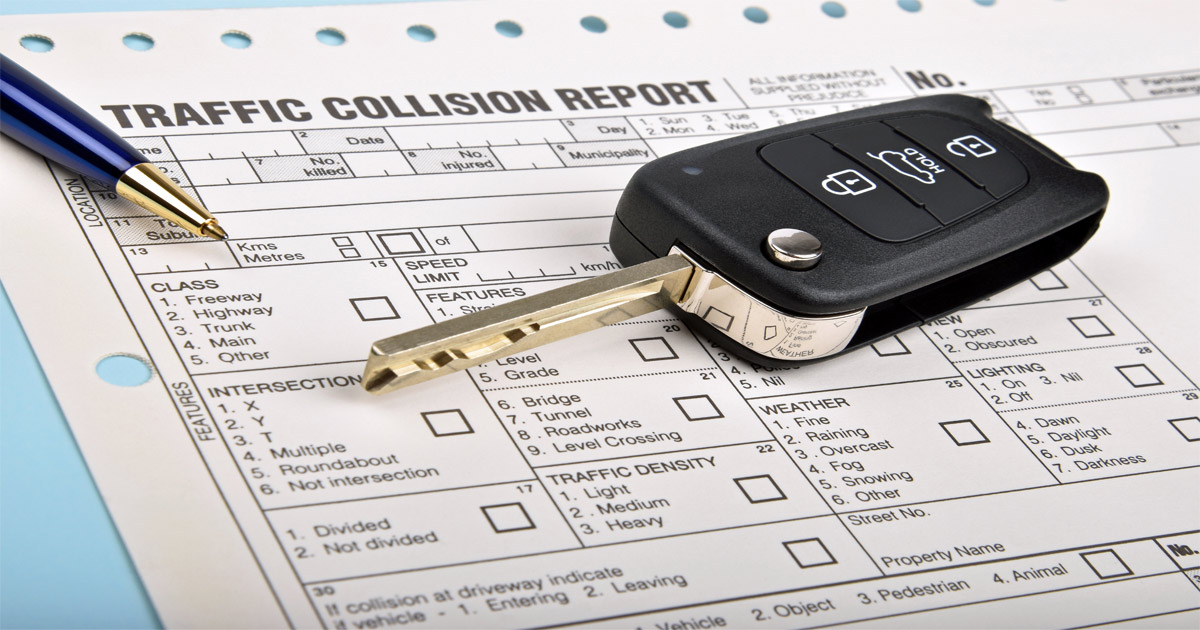It can be extremely difficult to remain calm after a collision, yet having a clear head can make dealing with the fallout much easier. Traumatic events like these can cause significant injuries and damages, and being able to follow certain steps will set the stage for a faster, easier recovery. Since it can be hard to make informed decisions after a shocking event, understanding how these things work beforehand can be helpful.
What Should I Do First?
Many accidents occur on busy roads and highways, so moving the vehicle to safety is imperative. This may not be possible if the car is too damaged, or if the drivers or passengers are severely injured. If it can be done safely, the car can be moved onto the shoulder or side of the road. Then, 911 should be called immediately, even if there does not seem to be serious injuries or damages.
It will take time for help to arrive, so drivers can check themselves for injuries first, then make sure passengers are okay. If someone is in distress, CPR may need to be administered. Even if someone does not feel hurt in any way, there could be undetected injuries. It is best to be evaluated by a physician as soon as possible. Serious injuries can show up later, and minor ones can develop into long-term problems. Evidence of prompt medical attention is also important when it comes to making insurance claims.
How Do I Deal With Police?
Even if the other driver does not want to get the police involved, the police should still be contacted. That driver could also try to offer money to settle the case on site. Taking the money is never recommended, since the actual cost of injuries and damages could be much more. In addition, this could negate the validity of any other subsequent claims. In most cases, the best thing to do is wait in the car until help arrives.
When police do arrive, they should be given short, factual statements. Accident victims may feel the need to talk, but anything said could be held against them later. They may not know about all the factors that led to the collision, and can blurt out things that make them appear liable. Admitting fault to police officers is another big mistake, with clear implications.
Can I Gather My Own Evidence?
There are certain ways to gather evidence at the scene and afterwards. If the police provide a report, they should also provide a card with information on how to obtain a copy. Documenting the collision as thoroughly as possible is also recommended. Taking photos of the damage, the other car’s license plates, downed signs, weather conditions, and anything else that can support a claim is useful.
Drivers and passengers can also share contact information and insurance company details. If anyone witnessed the crash, it may also be possible to get their contact information as well. They could provide valuable details that make or break a claim.
Dealing with Insurance Companies
Auto insurance policies may have wording that requires policy holders to report accidents; not doing so could cause the company to raise rates or cancel coverage. These are referred to as notification and cooperation clauses. The premiums will probably not increase if the policy holder is not at-fault for the collision, but this could depend on any past traffic violations and accidents. It is also not a good idea to admit fault to the insurance company.
After an accident occurs in New Jersey, insurance policy owners have to contact their provider to file first-party claims. This needs to happen as soon as possible, even if the policy owner plans to file a claim with the liable driver’s insurance company. The latter claim is considered a third-party claim.
More About New Jersey Insurance
In New Jersey, drivers must carry minimum bodily injury and property liability coverage. If the collision is covered, the limit for bodily injury is $15,000 per person, maximum $30,000 per incident. Another $5,000 in property damage is also covered. Policy holders cannot usually make first-party claims against their own liability coverage, but it may be possible to file first-party claims for other types of compensation.
Personal injury protection (PIP) coverage is also required in the state, and this covers medical costs incurred by the policy owner and their passengers. This kicks in no matter who was at-fault for the collision. It can be stand-alone coverage for drivers without health insurance, or it can coordinate with health insurance coverage.
New Jersey auto insurance policies also have limited and unlimited options for suing for pain and suffering caused by a collision. The limited choice only allows the policy holder to sue for this in extreme circumstances, such as loss of a body part, permanent disfigurement, or death. The more costly unlimited option allows policy holders to sue for pain and suffering, no matter how severe the injuries are.
Injured parties do not have to file first-party claims if they experience serious injuries, such as displaced fractures, dismemberment, loss of a fetus, and other injuries. There is also a contributory negligence rule that applies to personal injury cases. If it is determined that the injured party contributed to the accident, they will be assigned a percentage of responsibility. This percentage, if more than 50 percent, will impact the amount of compensation that can be awarded.
Hazlet Car Accident Lawyers at Mikita & Roccanova Help Victims Injured in All Types of Car Accidents
The experienced Hazlet car accident lawyers at Mikita & Roccanova can provide you with sound legal guidance for any type of car accident, and now is the time to reach out for help. For a free consultation, complete our online form or call 732-705-3363. Located in Hazlet and Highland Park, New Jersey, we serve clients throughout Ocean County, Sussex County, and Pennsylvania.


